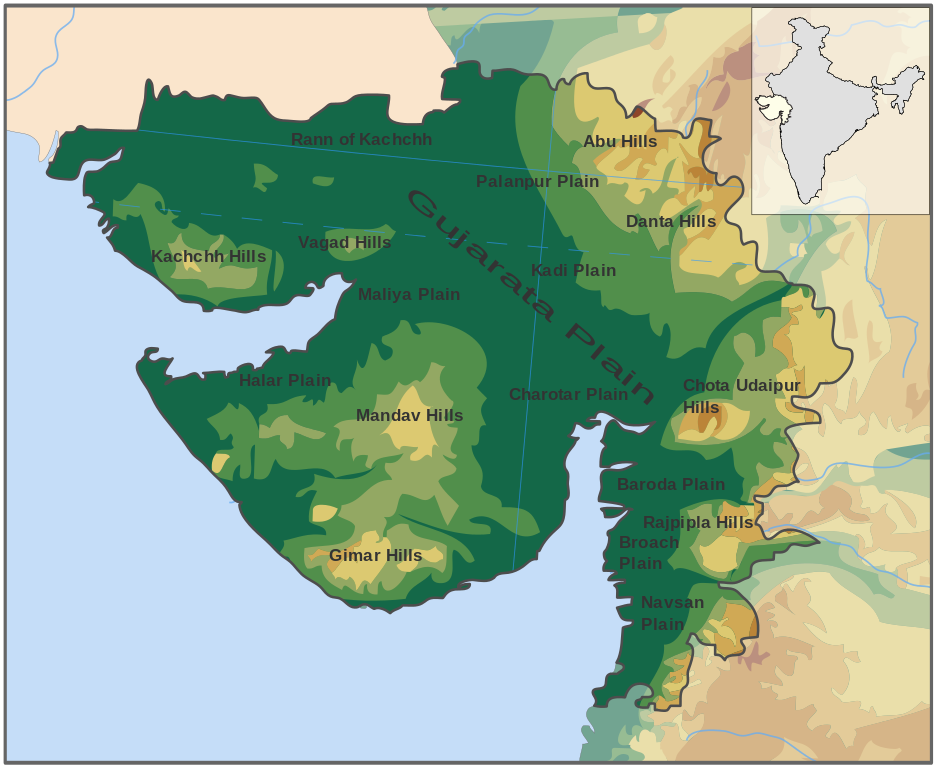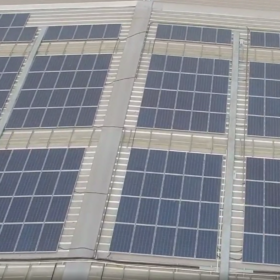With recent solar auctions in India yielding tariffs below INR 2/kwh, Gujarat Urja Vikas Nigam Ltd, which is responsible for bulk purchase and bulk sale of power in the State, is looking to quash its 700 MW auction and retender the capacity. And, it has the State’s electricity regulatory commission nod for the plan.
The auction for the 700 MW project, part of a 1 GW planned at Dholera Solar Park, saw ReNew Power, Tata Power, state-run SJVN Ltd, TEQ Green Power, and Vena Energy Renewables Urja being issued Letter of Award for the capacity at prices up to INR 2.81/kWh on October 9 last year.
However, as GUVNL discovered a lower rate of INR 1.99/kWh in another auction recently, it filed a petition with the State electricity regulator to seek retendering of the 700 MW capacity, citing that the tie-up at a higher tariff of INR 2.78-2.81/kWh for 25 years under the present bid may have substantial financial implication on the consumers at large. It also mentioned that the PPAs for 700 MW capacity out of 1000 MW are yet to be approved by the [regulatory] commission, to seek order in its favour.
GUVNL said tariff ceiling of INR 2.92 in the auction was set following developers’ cold response to tenders in the Dholera Solar Park because of challenging geographical conditions of the site, which raise the cost of project development for developers.
However, after the Letter of Award, it was found that the capital cost and other expenses for solar projects might have significantly reduced, driving considerably lower prices of INR 1.99 in non-park based tender, GUVNL said in its petition.
The Commission passed the order in GUVNL’s favour citing the Electricity Act’s objectives that competitive procurement of electricity will ultimately benefit the consumers. It said GUVNL might approach the Commission for the adoption of tariff afresh after taking appropriate action regarding bidding.
Impact
Developers’ body National Solar Energy Federation of India (NSEFI) has termed the GUVNL move unfortunate as it hurt investments into the solar sector when the nation is nearing the 2022 deadline for its 100 MW solar target.
Notably, the Gujarat case differs from the earlier tariff dispute in Andhra Pradesh as PPAs for the 700 MW capacity are yet to be signed. In Andhra Pradesh, the state government sought to review the high-priced wind and solar power purchase agreements and to negotiate with the developers selling electricity to state DISCOMs to reduce the prices.
Speaking to pv magazine, NSEFI chief executive officer Subrahmanyam Pulipaka said the situation still poses investment risks to PV development as developers start arranging finance after winning the capacity.
“This is a serious breach of trust and contract by Gujarat. This will have a great repercussion on investor confidence in the Indian renewable energy market. We have made due representations to the government of Gujarat and the Ministry of New and Renewable Energy (MNRE) and are hopeful that a solution will be worked out soon,” Pulipaka said.
Meanwhile, Amitesh Kumar Sinha, joint secretary at the ministry, has reportedly said the ministry is looking into the matter, and the issue will be resolved.
This content is protected by copyright and may not be reused. If you want to cooperate with us and would like to reuse some of our content, please contact: editors@pv-magazine.com.









5 comments
By submitting this form you agree to pv magazine using your data for the purposes of publishing your comment.
Your personal data will only be disclosed or otherwise transmitted to third parties for the purposes of spam filtering or if this is necessary for technical maintenance of the website. Any other transfer to third parties will not take place unless this is justified on the basis of applicable data protection regulations or if pv magazine is legally obliged to do so.
You may revoke this consent at any time with effect for the future, in which case your personal data will be deleted immediately. Otherwise, your data will be deleted if pv magazine has processed your request or the purpose of data storage is fulfilled.
Further information on data privacy can be found in our Data Protection Policy.